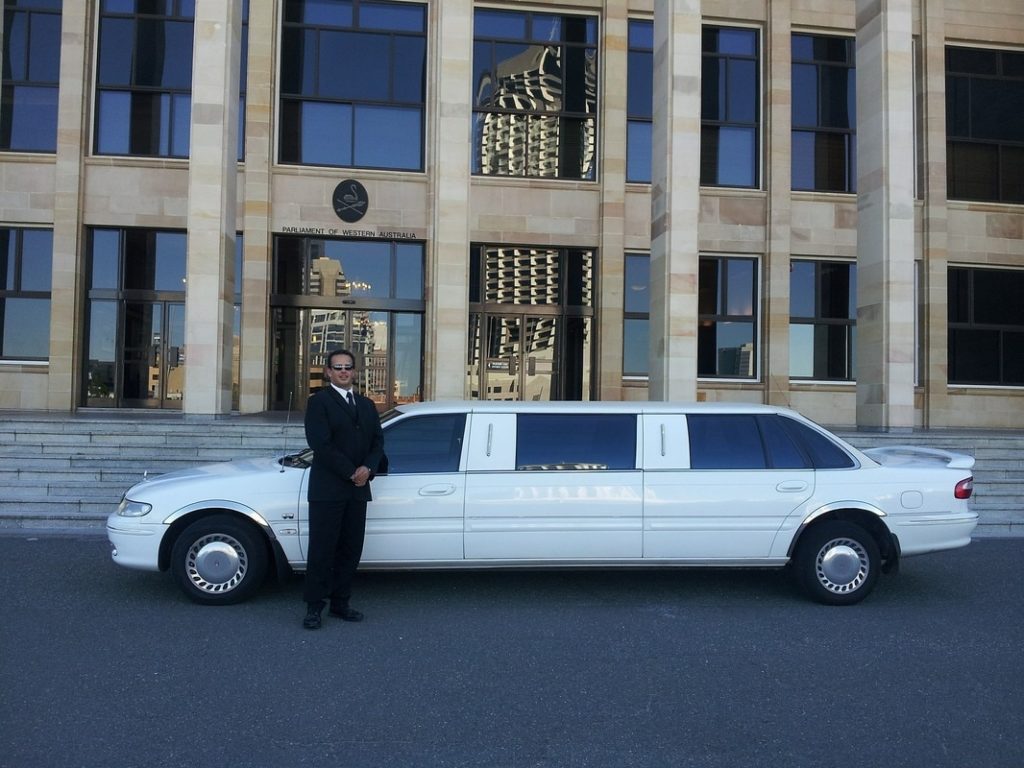19/01/2017
Lions Gate provides a range of executive security services across several industry sectors, including the energy and mining sectors, the entertainment industry, as well as lesser known local or international VIPs and High-Value Individuals (HVIs). Executive Security services are also frequently termed Executive Protection (EP), Close Protection (CP) services and EP or CP Details, with the terms being used interchangeably in this article.
Within the Executive Security field, the security detail is typically subdivided into the Advance Team members, Security Drivers, EP/CP team members, EP/CP Team Lead, and the Personal/Principle Protection Officer (PPO), with each role having a defined scope and area of responsibility. Working closely together with the headquarters’ support staff, the team coordinates all aspects of travel, appointments and events for the client to ensure the security coverage adequately and sufficiently meets the risk exposure of the client, who is typically referred to as the ‘Principle’.
However, the reality is the vast majority of EP details are not conducted by full teams, and even a two-man team is not the norm. Rather, a single PPO frequently must take on all the functions of the EP Detail, under typically challenging and unfavorable circumstances. As such, the 1-man PPO then manages his client’s needs, which often enough goes far beyond the basic security coverage.

Long-serving and permanent PPOs (typically in-house employees at that point) often become familiar with, close to, and trusted by the client with many of their personal needs and idiosyncrasies. This can include becoming privy to the client’s personal family relationships, business, and any strife and conflicts with friends, family and colleagues. The PPO can end up managing not only the client’s security, but interacting, engaging, and mediating on their client’s other interests. The client’s personal security is always first in mind, and within the scope of executive security coverage, the professional PPO must of course include the physical security and well-being of the person and their assets, but must also safeguard their client’s reputation and their image in the public eye, protecting them against potential public humiliation and embarrassment. Even if contracted instead of being employed in-house, the obligations towards the Principle remain the same.
The challenge lies in getting everything accomplished within what are typically significant time constraints. A proper EP detail requires a proper Advance – a ‘reconnaissance’ visit by the security detail – of the venue(s) to be attended by the client. This should be conducted well prior to the actual visit by the client to confirm travel routes and ensure they are clear of construction or congestion. As well, the Advance serves to meet and coordinate with the venue staff (ie hotel / restaurant / conference center / entertainment venues / offices, etc), to ensure the personal needs of the client are met (meal requirements, time limits to visits and meetings, security concerns, alternate entry/exit arrangements, emergency protocols, etc). Where there is a full team in place, the Advance can be done in due course, with sufficient time to confirm and finalize the arrangements.

In the case of the 1-man EP detail, the PPO will often have to enlist support from the office staff or executive assistant, or confirm some elements without being able to go to site, or conduct the advance during off-hours and possible on his/her own time and dime… Clearly such a limited Advance brings with it inherent risks where key risk exposures may not be adequately identified and addressed prior to the Principle’s arrival. Lions Gate relies on strong pre-existing relationships with key service providers to mitigate these risks as best possible, along with the support from our intelligence group to identify potential threats beforehand that would dictate changes to the security envelope.
Where this is not possible, the PPO’s ability to build and maintain strong working relationships with the client’s staff, and his/her ability to build rapport and garner support from/with all kinds of venue staff is a key employment skill, as is the ability to build a strong network of contacts to call upon with short notice to assist where needed, and to mitigate these vulnerabilities where possible.

As the PPO frequently is a 1-man team, they will also frequently need to take on the role as the security driver. A key challenge for the 1-man PPO is that as the security driver they are also required to plan and follow through on the most efficient or safest route (not always the same…). Where the client operates on an irregular schedule or has frequent changes, having a high level of area knowledge is imperative. Todays increasingly networked and integrated technology has been invaluable in assisting EP teams in identifying and proactively circumventing traffic jams and identifying alternate travel routes. Utilizing GPS and Google can assist in identifying points of interest ranging from entertainment events to hospitals because often enough, the PPO also acts as the guide to the sights and events around town.
The 1-man EP detail may only have minutes to prepare the route from one venue to the next, making it necessary to be familiar with technology. The ability to prioritize and multi-task are key skills required of PPOs and having a support network to quickly tap into can be key in a successful EP operation.
One of the greatest vulnerabilities during an EP Detail is during the travel to and from a building or vehicle. When the EP Detail is a 1-man operation, it is necessary to plan and coordinate movements or transitions beforehand. If the 1-man PPO is required to escort the Principle from the vehicle to the building and back, and parking curbside is not an option due to traffic or parking restrictions, then prior arrangements for secure parking (ie underground or valet parking) are necessary. A second option would be to park legally and within an acceptable walking distance to the venue. If parking illegally is not an option, arrange to be met by venue staff who can take custody of your vehicle and park it appropriately. The alternative is for the Principle to have the PPO only conduct the security driver function on specific occasions, and accept the risk of getting to and from the vehicle and building without the PPO’s coverage. Each option presents certain vulnerabilities that must be weighed, assessed, discussed and SOPs (standard operating procedures) defined with the principle beforehand; and where undefined, the PPO must be given the flexibility to dictate and arrange the most appropriate option based on their judgement and experience. These are working conditions that should be pre-defined within the scope of work and service contract.
Due to the range of uncontrollable logistical variables presented in the 1-man security driver / EP scenario, a safer practice would be to either commit to providing a security driver only, or insist on increasing the security coverage to a 2-man detail where one person acts as the security driver and the other as the security escort.

One of the most important elements in conducting successful EP details is the relationship the PPO is able to build with the client. The PPO must quickly and correctly gauge the character of the Principle, and build a rapport where the client will readily accept advice about his or her personal security, and be willing to make adjustments to ensure their own security. This can be as simple as ensuring the PPO immediately knows when there is a change to the schedule to allow for security adjustments, or accepting guidance regarding security best-practices pertaining to vehicle entry and egress; moving in public and among crowds; and what they can expect from the PPO in the event of various types of emergencies
Security incidents may happen very quickly and an experienced PPO may be required to take evasive or protective steps sooner than he/she might if they had the support of an entire team. As such, the Principle needs to be aware that the PPO may strongly urge an end to a meeting or to vacate a venue when the Principle does not recognize the threat. The Principle must have the confidence that the PPO will make this decision based on the best security interests of his client and at that point, be prepared to comply with the PPO’s instructions. Relinquishing this decision is one of the most difficult operational issues for a Client to accept. The PPO could be passively involved with the Principle most of the time, but when the PPO is required to make a security decision on behalf of the client, it should be understood that it was an informed decision given the circumstances and should be complied with by the client and his/her entourage.

In the day-to-day operations of the 1-man EP Detail, the challenge of multitasking competing priorities of the Client and providing effective security by the PPO will at times require balancing the vulnerability exposure against the probability of potential risks and threats. The PPO will need to regularly update the Client about risks and threats, and may have to do so on short notice as the situation evolves. Utilizing a security intelligence service in combination with an executive protection service is an effective and efficient way to deliver the security service. A security intelligence service can provide advance insight about opposition, security risks and threats and allows for pre-planning and setting the appropriate security posture for the situation. A real time connection between the intelligence analyst and the security officer provides a level of information gathering and real time decision making that does not exist when a security officer works in isolation.
The single most important skill within Executive Security – and the one to distinguish one firm over another– is the ability to build rapport and effective working relationships through high level communication skills. Regardless of the training and experience a PPO may have, it is communications skills which will provide them the ability to de-escalate a situation, avoid a crisis, obtain buy-in from the client and to secure the outside network support when it is required, especially for the 1-man EP detail.
The Lions Gate Risk Management Group is a Canadian security consultancy specializing in managing clients’ risk exposures, including the provision of scalable Executive Security services driven by our in-house intelligence resources, and supported by our behavioural assessment, investigative, and technical support services.